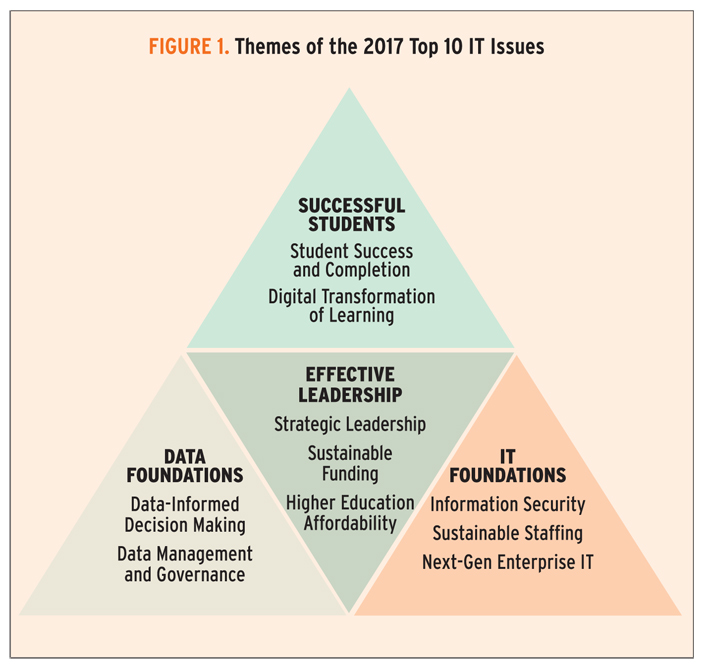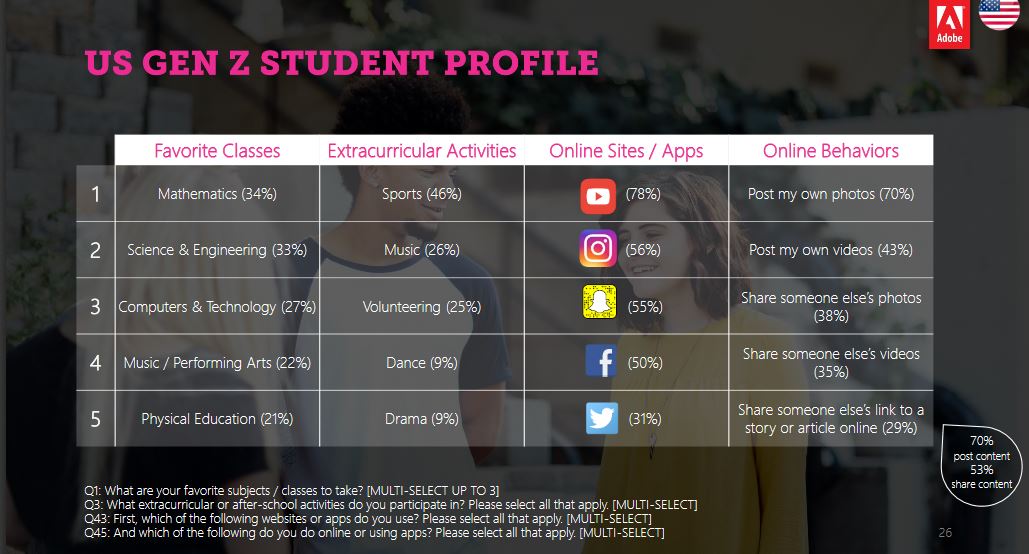Follow Along With a Grad Seminar About Edtech: Part 1, Picking the Best Tech
https://www.edsurge.com/news/2019-03-12-follow-along-with-a-grad-seminar-about-edtech-part-1-picking-the-best-tech
a tech catalog for students to explore and choose from, partially based on Georgetown’s enterprise suite, including a learning management system (Canvas), blogging (WordPress or other), student-run web domains, web annotation (Hypothesis) https://web.hypothes.is/, collaborative writing (Google Suite), discussion boards (Discourse), and videoconferencing (Zoom).
Neil Selwyn’s excellent Education and Technology: Key Issues and Debates.
++++++++++++++++++++++++++++
How Can Digital Audio Enhance Teaching and Learning?
https://www.edsurge.com/news/2019-03-28-grad-seminar-on-edtech-part-2-how-can-digital-audio-enhance-teaching-and-learning
Before there were podcasts, there was pirate radio, rogue broadcasters flinging unusual sounds over borders and adding new music to cultures. And before that there was the “theater of the mind,” harnessing radio’s deep power to inspire listeners’ imaginations.
Then we advanced to podcasting’s second wave—the one we’re enjoying now—the one sparked by Serial’s massive success in 2014. When you consider audiobooks in the mix, it’s clear how varied and mainstream portable digital audio is today.
+++++++++++++++++++
https://www.edsurge.com/news/2019-04-18-video-assignments-are-the-new-term-paper-how-does-that-change-teaching-and-learning
Digital video has taken the world by storm. Netflix is busy changing television and movies. YouTube may be humanity’s largest collaborative cultural project, aggregating an astonishing amount of user-generated content. The Google-owned service is widely used that it may already soak up more than a third of all mobile traffic.
Unsurprisingly, we increasingly learn from digital video. The realm of informal learning is well represented on YouTube—from DIY instruction to guerrilla recordings of public speakers. Traditional colleges now rely on digital video, too, as campuses have established official channels and faculty regularly turn to YouTube for content. And new kinds of educational institutions have emerged, like the nonprofit Khan Academy,
We also explored the rise of teaching via live video. More colleges are using it for online learning, since it can make students and instructors more present to each other than most other media. We also saw videoconferencing’s usefulness in connecting students and faculty when separated by travel, illness or scheduling challenges.
Our readings—Zac Woolfitt’s “The effective use of video in higher education,” and Michelle Kosalka’s “Using Synchronous Tools to Build Community in the Asynchronous Online Classroom”—and discussion identified a range of limitations to video’s utility. Videoconferencing requires robust internet connection that not all students have access to, and even downloading video clips can be challenging on some connections. People are not always comfortable appearing on camera. And some content is not well suited to video, such as mostly audio conversations or still images.
Media, Technology and Education in a Post-Truth Society
https://www.emerald.com/insight/publication/doi/10.1108/9781800439061
Alexander, B. (2021), “Macroauthorities and Microliteracies: The New Terrain of Information Politics”, Grech, A. (Ed.) Media, Technology and Education in a Post-Truth Society (Digital Activism and Society: Politics, Economy And Culture In Network Communication), Emerald Publishing Limited, Bingley, pp. 29-37. https://doi.org/10.1108/978-1-80043-906-120211003
Portelli, J.P. and Oladi, S. (2021), “Post-truth Society: Toward a Dialogical Understanding of Truth”, Grech, A. (Ed.) Media, Technology and Education in a Post-Truth Society (Digital Activism and Society: Politics, Economy And Culture In Network Communication), Emerald Publishing Limited, Bingley, pp. 11-28. https://doi.org/10.1108/978-1-80043-906-120211002
Patrinos, H.A. (2021), “The Learning Challenge in the Twenty-first Century * “, Grech, A. (Ed.) Media, Technology and Education in a Post-Truth Society (Digital Activism and Society: Politics, Economy And Culture In Network Communication), Emerald Publishing Limited, Bingley, pp. 39-53. https://doi.org/10.1108/978-1-80043-906-120211004
Pauncefort, E. (2021), “Critical Literacy Is at the Heart of the Answer”, Grech, A. (Ed.) Media, Technology and Education in a Post-Truth Society (Digital Activism and Society: Politics, Economy And Culture In Network Communication), Emerald Publishing Limited, Bingley, pp. 73-94. https://doi.org/10.1108/978-1-80043-906-120211006
Balser, W.F., Diasio, S. and Kendal, T. (2021), “Societal Reorientation via Programmable Trust: A Case for Piloting New Models of Open Governance in Education”, Grech, A. (Ed.) Media, Technology and Education in a Post-Truth Society (Digital Activism and Society: Politics, Economy And Culture In Network Communication), Emerald Publishing Limited, Bingley, pp. 95-110. https://doi.org/10.1108/978-1-80043-906-120211007
This essay proposes the need to infuse open innovation (OI) and open source (OS) principles and technologies into schools as a means of tackling many of the most pervasive challenges in education, and by extension, society at large. It is argued that the principles of OI and OS, which are rooted in innovation management and software development, respectively, may be applied to the way we conceive of and approach organizational governance structures related to schooling, particularly in regard to harnessing innovation, updating management processes, and codifying new systems of trust. Whereas OI offers a novel approach to knowledge flow and the open exchange of ideas, communities rooted in OS principles breed tangible and generative effects through peer network democratization. These emergent, digitally defined networks have been proven to maximize innovation potential, expand collaboration, and enable the propagation of highly durable systems of trust and transparency, all catalytic and essential if we are to realize a future learning economy which favors equity, distributed systems, and common goods over profit, centralized decision-making, and proprietorship. It is within this framing that we articulate the core tenets of both OI and OS translationally as a means of stimulating thinking about how core principles of “openness” and the distributed technologies they enable may help to build common ground in an ever-evolving education and information ecosystem.
Sant, T. (2021), “How Can Wikipedia Save Us all?: Assuming Good Faith from all Points of View in the Age of Fake News and Post-truth”, Grech, A. (Ed.) Media, Technology and Education in a Post-Truth Society (Digital Activism and Society: Politics, Economy And Culture In Network Communication), Emerald Publishing Limited, Bingley, pp. 133-143. https://doi.org/10.1108/978-1-80043-906-120211010
Fusari, M. (2021), “The Kony 2012 Campaign: A Milestone of Visual Storytelling for Social Engagement”, Grech, A. (Ed.) Media, Technology and Education in a Post-Truth Society (Digital Activism and Society: Politics, Economy And Culture In Network Communication), Emerald Publishing Limited, Bingley, pp. 155-173. https://doi.org/10.1108/978-1-80043-906-120211012
Mallia, Ġorġ. (2021), “Post-truth Visuals, Untruth Visuals”, Grech, A. (Ed.) Media, Technology and Education in a Post-Truth Society (Digital Activism and Society: Politics, Economy And Culture In Network Communication), Emerald Publishing Limited, Bingley, pp. 175-187. https://doi.org/10.1108/978-1-80043-906-120211013
Basu, D. and Gabbay, M. (2021), “Karl Marx and the Blockchain”, Grech, A. (Ed.) Media, Technology and Education in a Post-Truth Society (Digital Activism and Society: Politics, Economy And Culture In Network Communication), Emerald Publishing Limited, Bingley, pp. 225-241. https://doi.org/10.1108/978-1-80043-906-120211016
Blockchain is often presented as a technological development; however, clearly it is not only that: the ‘Blockchain buzz’ exists in the context of current social and political developments. In this essay, we analyse blockchain technology and its social and political context from a perspective of Marxist economic theory. Since arguably the last great inflection point in society and technology was analysed by Marx in terms of labour and capital and since we seem to be experiencing a shift in the balance between these forces today, it makes sense to revisit the Marxist ideas and apply them to the current situation, to see how well they still apply and if necessary to update them for current events.
Ellul, J., Grech, A. and Pace, G.J. (2021), “Two Sides to Every Story. The Truth, Post-truth, and the Blockchain Truth”, Grech, A. (Ed.) Media, Technology and Education in a Post-Truth Society (Digital Activism and Society: Politics, Economy And Culture In Network Communication), Emerald Publishing Limited, Bingley, pp. 243-253. https://doi.org/10.1108/978-1-80043-906-120211017
One of the rallying cries of the blockchain community is that of immutability: the irreversibility of the past, the absolute truth which, once stored, remains there forever. The technology was designed with this foundational pillar in mind to ensure that changes to history are inordinately expensive and practically impossible to execute – and increasingly so, the further in the past the event which one intends to manipulate lies. This platonic view of absolute truth is in stark contrast with a world of manipulated truth, and it is not surprising that it is being revisited as a means of combating fake news. We argue that claims to the absolute nature of the blockchain are at best exaggerated, at worst misrepresented or even ‘fake news’. We discuss implicit centralised points of trust in blockchains, whether at a technological, social or governance level, and identify how these can be a threat to the ‘immutable truth’ stored within the blockchain itself. A global pandemic has unleashed an unprecedented wave of contradictory positions on anything from vaccines and face masks to ‘the new normal’. It is only natural that the pursuit of blockchain as a placebo for society’s ‘truth’ problems continues.


